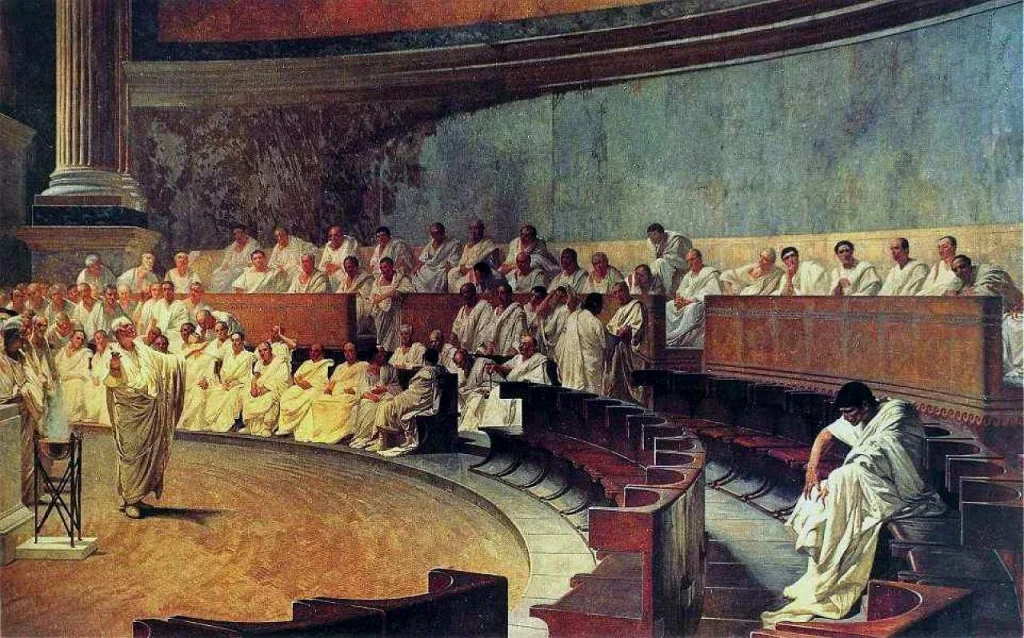Since last week, when I wrote again about the power of one-to-one tutoring, I have had even further cause to reflect on its essential benefits.
It would come as shock, I suspect, to most classroom teachers, the extent to which students forget, misinterpret or loftily ignore what they have no doubt been taught in school. I say “no doubt” because I refuse to believe that students have never been taught the basic background to the texts that they are studying, despite their protestations.
What does happen, I believe, is that teachers over-estimate students’ ability to absorb and remember complex material. It certainly came as a shock to me when I started to read more about how memory works (a criminally overlooked field of study in my training) and came to realise just how much repetition is required for students to grasp the basics. In this blog post, I plan to outline the opening few lines of one of the current OCR set texts and explore the things that have puzzled, baffled and troubled the students I have worked with this year. I hope that this will enlighten readers as to the extent that some students struggle with complex material.
One of this year’s texts is taken from Virgil’s Aeneid Book 1. It starts at line 13, so as close to the beginning of the text as one could wish for. This potentially makes for a much easier life than the times when a set text has been taken from Book 10 or Book 12. One would have thought that it would be an easy task to get students to comprehend the basic facts of what the text is about and its core purpose. Well, one would have thought wrongly. With only one exception, the students requesting my help with the Virgil text this year have not been able to define what an epic is, nor were they able to say what Virgil’s purpose was in writing the Aeneid. Most of them swore blind that they’d never been taught the definition of an epic. Beyond this, they have all been baffled to the point of total and utter confusion as to who the Trojans were and what on earth they had to do with the Romans and their self-definition. So, let’s look at some extracts from the opening lines of the text and see in more detail what’s been troubling my charges.
urbs antiqua fuit, Tyrii tenuere coloni,
There was an ancient city, [which] Tyrian settlers inhabited,
Karthago, Italiam contra Tiberinaque longe
Carthage, opposite Italy and the far-distant mouth of the Tiber,
ostia, dives opum studiisque asperrima belli;
rich in resources and most formidable in the practices of war;
Out of those who have requested help with the Virgil, most of them were unable to tell me where Carthage was and why it’s described as a formidable stronghold. None of them – genuinely no exceptions – understood the historical fact that the Romans had destroyed Carthage over 100 years before Virgil was writing. While I would not for one moment expect any of them to have detailed knowledge of the three Punic Wars, I was a little surprised that none of them seemed to be conscious of the fact that Virgil was writing in a world in which this rival superpower had been razed to the ground decades earlier, and that this was a crucially important part of how the Romans defined themselves. Does it seem likely that this was never mentioned by any of their teachers? I think probably not. Is it likely, however, that this was perhaps mentioned once in the first lesson and then rarely – if ever – reiterated? That, I’m afraid, seems plausible. I think teachers need to think very hard about what’s happening in the first couple of lessons of set text work. When you present the students with the text, their minds are completely preoccupied with the length of it and how on earth they are going to cope with learning it; they are thus even less likely to absorb any background information you’re giving them.
Very few students were able to tell me what the Tiber is (a river in Rome, as iconic to the Romans as the Thames is to Londoners) and none of them seemed to understand how Carthage is “opposite” Italy. Carthage lay on the other side of the Mediterranean sea, located on the coast of north Africa, in what we now call Tunisia – indeed, it kind of bulges out into the sea and looks to be the bit of land mass in Africa that is closest to Italy. Perhaps it is because my own sense of direction and general geography is so embarrassingly poor that I always look all of these places and features up on a map and contextualise them for myself in detail. Do teachers assume that their students’ knowledge of geography is as sound as their own? Maybe so, and if so, I guess my advantage is that my own geography is so awful that I assume absolutely nothing! Anyway, the text and the description of Carthage continues:
quam Iuno fertur terris magis omnibus unam
[one] which Juno is said to have cherished more [than] all [other] lands,
posthabita coluisse Samo; hic illius arma,
valuing [even] Samos the less;
Now we’re getting on to the meat of the text and what Virgil is building up to in this opening section. He sets out to explain why Juno, the queen of the gods (most students didn’t know that, by the way), has a massive beef with the Trojans. Here, he highlights the fact that Juno values Carthage even more than Samos. What’s he on about? My students didn’t know. Samos, an island off the coast of modern-day Turkey, was the birthplace of Juno and a centre of her worship. The fact that she values it less than Carthage highlights the importance of Carthage to her and hence her overwhelming desire to protect it. This is why Virgil mentions Samos.
progeniem sed enim Troiano a sanguine duci
But indeed she had heard [that] a breed [would] arise from Trojan blood,
audierat, Tyrias olim quae verteret arces;
which would one day overturn the Tyrian stronghold;
hinc populum late regem belloque superbum
from this would come a nation, wide-ruling and superior in war,
venturum excidio Libyae: sic volvere Parcas.
for the destruction of Libya: thus were the Fates unrolling.
I have asked all of my students to tell me who “the breed that would arise from Trojan blood” are, which could absolutely come up as a one-mark question in the exam. Until I explained, very few of them understood that it was the Romans. They seemed genuinely unsure about the point of the Aeneid‘s opening, which is to highlight how difficult the goddess Juno made it for the Trojans to make it to Italy, which was their destiny. Why were they headed to Italy? Again, when asked, students had not grasped the fact that Aeneas and the rest of the Trojans were refugees, survivors of the Trojan War and in search of a new city now that theirs had been destroyed. It seems remarkable given current events in both Europe and beyond that students seem to find this resonant fact so easy to forget. Has the analogy with modern refugees setting sail across dangerous waters ever been drawn for them? I do hope that is has, but again, maybe that’s happened only once. Students had failed to grasp that the Trojans are trying to get to Italy and that Juno is trying to prevent this because she is trying to prevent the Roman empire from existing and thus to prevent the destruction of Carthage by the Romans. Now, here’s what’s really interesting: I have explained this multiple times and in multiple ways to several different students individually, and most of them have really struggled to grasp it. I suspect it’s partly because they are having to think about multiple timelines and this is difficult for younger people; I also think it might have something to do with the fact that some of what they are being told is historical fact and some of it is legend – they genuinely find it difficult to get a handle on what it all means and how it fits together. I am still thinking about how it could be better explained in the future, since it’s clearly a lot more difficult to understand than those of us who are subject experts realise.
necdum etiam causae irarum saevique dolores
not even now had the causes of [her] resentment and bitter griefs
exciderant animo: manet alta mente repostum
left [her] heart: deep in her mind remained the far-off
iudicium Paridis spretaeque iniuria formae,
judgement of Paris and the insult of her beauty scorned,
et genus invisum, et rapti Ganymedis honores.
and her enmity towards the tribe and the honours paid to the stolen Ganymede.
Here, Virgil lists the reasons that Juno has for hating the Trojans. It seems that students find this really difficult, too. This is perhaps because they must grasp two separate things: firstly, they must understand that Juno’s over-arching reason for hating the Trojans is that they are destined to give rise to the Romans, who will eventually destroy her beloved Carthage. They find this really difficult to grasp, as I explained above. In addition, they must also understand that Juno has some other more petty reasons for hating the Trojans, mentioned here by Virgil. She has a general enmity towards the tribe because it is descended from someone called Dardanus, who was the son of her husband Jupiter as a result of one of his numerous extra-marital affairs. Thus, the existence of the entire Trojan race was an insult to Juno. In addition (and this is the only story that most of the students seemed familiar with) there was the beauty contest between three goddesses that Paris, a Trojan prince, was given the dubious task of judging. His choice was ultimately the cause of the Trojan War, since the bribe he was offered by the winner (Venus) was the most beautiful woman in the world, which was Helen, who happened to be married to a Greek. Hence, when Paris claimed his prize, the Greek tribes waged war upon the Trojans. More importantly for our purposes, the fact that Juno was not selected as the winner of the contest was yet another slight against her by a Trojan. The third petty reason mentioned, the “honours paid to the stolen Ganymede” is all about Jupiter’s promiscuity again. Ganymede was a handsome Trojan that Jupiter took a fancy to and abducted, yet another insult to his wife. (Note: Ganymede was not, as one of my students was absolutely convinced of, a horse. Not that taking a fancy to a horse was beyond Jupiter, miind you, but that isn’t what happened in the story).
his accensa super, iactatos aequore toto
Inflamed further by these [things], she kept the Trojans [who were] left by the Danaans
Troas, reliquias Danaum atque immitis Achilli,
and by ruthless Achilles far-distant from Latium, storm-tossed in every corner of the sea;
arcebat longe Latio, multosque per annos
and for many years
errabant, acti fatis, maria omnia circum.
they wandered around all the oceans by an act of fate.
tantae molis erat Romanam condere gentem!
Such a great undertaking it was to found the Roman race!
Here, Virgil sums up his overall point: that it is Juno’s hatred of the Trojans and her fear of their impending destiny, which causes her to work against their journey and to thus postpone their fulfilment of fate. One of the final things that I have noticed students really struggle to grasp is that fact that Juno knows full well that she won’t succeed: as a goddess, she can see the past, the present and the future, and she knows that the destruction of Carthage by the Romans is fated and inevitable. Still, she’s going to do everything in her power to prevent, or at least delay, the inevitable. I find it interesting that young people should struggle to understand this very human kind of motivation – that we might still strive for something that we already know is doomed to failure in the longterm. I guess they haven’t had experience of it yet.
Before teachers feel too dismal, I should point out that I do tend to specialise in working with students who really struggle with the subject. That said, what has been interesting this year is that almost all of my students have struggled with this text, even the high-fliers. I hope that this post has given some food for thought. It is so easy to assume that students have understood what we have told them, so easy to imagine they are following what we say. Until we delve a little deeper – one of the immense joys of working one-to-one as I do now – we can delude ourselves that they have understood the point of a text and are following its meaning.





